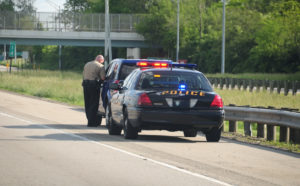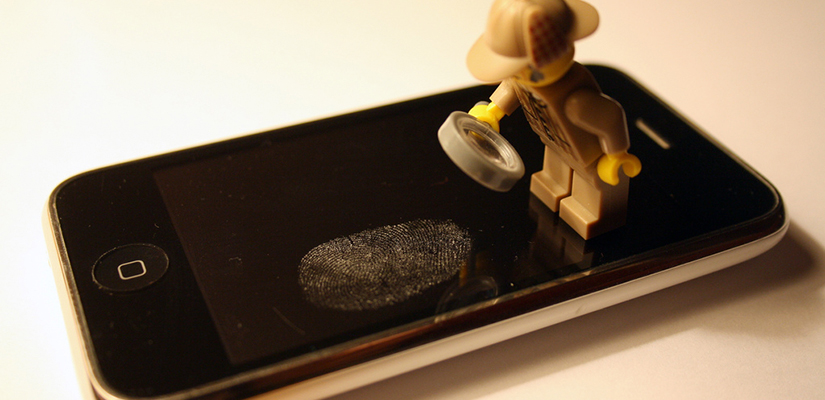Many drivers dread the sight of a police car in the review mirror, hoping the sudden flashing of lights and blaring of a siren will not ruin their day. Should that happen to you, it is important that you understand what the police are and are not allowed to do during a traffic stop.

Reasonable Suspicion and Probable Cause
The Fourth Amendment to the U.S. Constitution protects people from unreasonable searches and seizures. Over time and through various Supreme Court decisions, the Fourth Amendment has come to mean that you cannot be arrested (or “seized”) without probable cause, which requires that law enforcement officials had reason to believe you committed a crime, were in the act of committing a crime, or were about to commit a crime.
However, the standard that an officer must meet simply to pull you over is not as high as probable cause. To initiate a traffic stop, all an officer must have is a “reasonable suspicion.” Reasonable suspicion is a standard established by the Supreme Court in a 1968 case in which it ruled that police officers should be allowed to stop and briefly detain you if there is reason to believe that you are engaging in criminal activity.
Notice the difference between the two standards: probable cause is from the point of view of a reasonable person; reasonable suspicion is from the point of view of a reasonable police officer.
What Officers Can and Cannot Do
Without reasonable suspicion or probable cause, officers are very limited in what they are allowed to ask of you during a traffic stop. They can:
- Ask you for your identification, driver’s license, registration and proof of insurance.
- Act on circumstances or facts that provide reasonable suspicion or probable cause that you engaged in criminal activity.
- Conduct a “sniff test” for drugs outside of the vehicle with a police dog (K9 unit), provided the sniff test does not extend the length of the stop.
There are many acts an officer cannot do if he or she stops you and doesn’t have reasonable suspicion. An officer cannot:
- Search your vehicle without your consent. Always remember that you have the right to refuse a search of your vehicle!
- Detain you for longer than necessary to affect the reason for the stop.
When Can Officers Search My Body or My Car?
If an officer is able to support the stop with reasonable suspicion, the Supreme Court has held that he or she may conduct a pat down search of you and your passengers for the purpose of checking for concealed weapons. This is because the court has decided that the officer’s safety is a justifiable concern when he or she suspects that you may have committed a crime.1
 With probable cause and the existence of exigent circumstances, the officer has greater freedom to search your vehicle. Exigent circumstances are those that would cause a reasonable person to believe that action was “necessary to prevent physical harm to the officers or other persons, the destruction of relevant evidence, the escape of a suspect, or some other consequence improperly frustrating legitimate law enforcement efforts.”2
With probable cause and the existence of exigent circumstances, the officer has greater freedom to search your vehicle. Exigent circumstances are those that would cause a reasonable person to believe that action was “necessary to prevent physical harm to the officers or other persons, the destruction of relevant evidence, the escape of a suspect, or some other consequence improperly frustrating legitimate law enforcement efforts.”2
If the officer lawfully arrests you, he or she is allowed to conduct a “search incident to a lawful arrest.” A search of the interior of your vehicle incident to arrest is constitutionally permitted if it is conducted while an unsecured arrestee is within reach of the passenger compartment. So, for example, if you have been arrested next to your vehicle, but you have not been handcuffed and placed in the police officer’s car, the officers can search the passenger and driver areas, including the glove compartment and center console.
Officers may also search your car’s interior if they reasonably believe evidence related to the offense of the arrest may be in that vehicle, but generally not the trunk.3 However, if you are arrested and your car is impounded, police will conduct an inventory search to log the contents of your vehicle. Evidence found during that search can be used against you if you are prosecuted for a crime.
Finally, an officer may conduct a search and seizure without a warrant if he or she observes criminal conduct or evidence that is in plain view. This requires that the officer is in a physical position where he or she is legally allowed to be (such as standing outside of your car) that he or she can physically access the evidence, and that the criminal nature of the evidence is immediately identifiable by the officer. So, for example, if the officer stops you for speeding, and, while standing next to your door and looking in your open window, sees an open beer bottle in the cup holder next to your seat, the officer can seize that bottle as evidence.
Contact a Wallin & Klarich Defense Attorney Immediately
If you are facing criminal charges and you believe your rights were violated, you should speak to an experienced criminal defense attorney. At Wallin & Klarich, our attorneys have over 30 years of experience successfully defending against criminal charges in California. Let us help you, too.
With offices in Los Angeles, Sherman Oaks, Torrance, Orange County, San Diego, Riverside, San Bernardino, Ventura, West Covina and Victorville, there is an experienced Wallin & Klarich criminal defense attorney near you no matter where you work or live.
Call us today at (888) 280-6839 for a free phone consultation. We will get through this together.
1. Terry v. Ohio, 392 U.S. 1 (1968) href=”#ref1″>↩
2. United States v. McConney, 728 F.2d 1195, 1199 (9th Cir.), cert. denied, 469 U.S. 824 (1984) href=”#ref2″>↩
3. Arizona v. Gant, 556 U.S. 332 (2009) href=”#ref3″>↩


